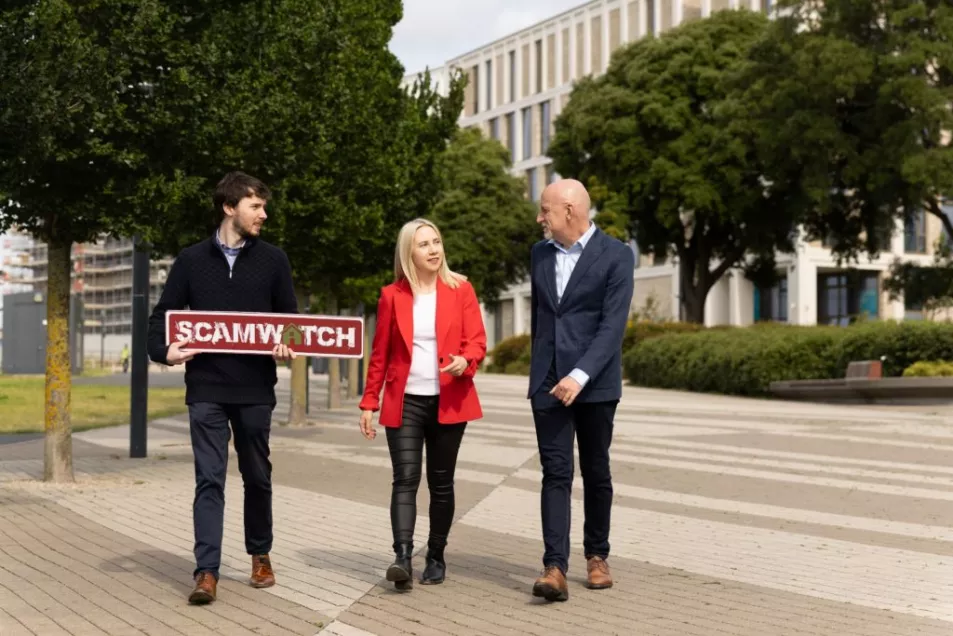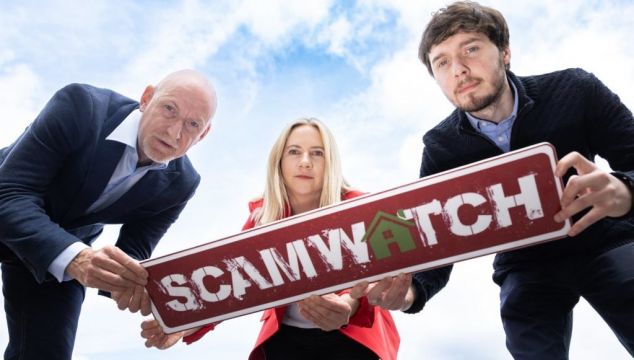Students looking for rental accommodation have been urged to be wary of scams ahead of the new academic year.
National housing charity Threshold has partnered with the Irish Council for International Students (ICOS) and the Union of Students Ireland (USI) as part of its annual ‘Scamwatch’ campaign to raise awareness around ever-more elaborate fraudulent scams.
The joint 2024 campaign is calling on students to carry out some thorough checks before paying deposits for private rental accommodation, amid growing warnings of scams from gardaí, as a new academic year commences in the coming weeks.
Threshold is urging incoming students to reach out if they come across a suspicious advert as they look for a home, in a competitive rental market, for the upcoming academic year.
Over 250,000 students are expected to return to college this year, with over 100,000 living in the private rental market, as previously indicated by 2023 figures.
However, the limited supply - or prohibitive cost - of purpose-built student accommodation means many students must look elsewhere for available properties, and this can result in some falling victim to sophisticated scams.
Commenting on this issue, Threshold’s campaigns officer Cat Clark said: “With so many students entering the rental market for the first time this September, we are urging those who come across suspicious adverts to reach out to Threshold so that our team can provide support, and potentially prevent many students and other renters falling victim to scams."
International students are particularly vulnerable
ICOS promote the rights and welfare of international students who choose Ireland as a study destination. Laura Harmon, executive director, said the organisation is regularly contacted by international students seeking information and advice, and in many cases, English is not their first language.
“Due to this language barrier, our research has found that more than one in four international students use group chats and social media pages to find accommodation, where scams are particularly prevalent and as a result, are more likely to fall victim to an accommodation scam.
“We carried out a survey with 819 participants late last year that found 13 per cent of these had been the victim of an accommodation scam, but only 11 per cent of this cohort reported the crime to authorities.
“We would urge students who are coming to Ireland for the first time to contact Threshold for support if they are unsure about a property.”
Shortages and high accommodation cost making students an easy target
USI vice president for welfare Niamh Doherty said this can be a really difficult time for students who don’t yet have a room for the new academic year.
“We know it can be especially hard for first years and international students, who don’t have as much time to get their accommodation sorted. It is even harder when there is such a shortage of accommodation, and everything is so expensive.
“Students can get desperate, and it can be really easy to fall victim to scams, so we hope this campaign can guide them on what to look out for and how to spot a scam if they encounter one. USI advises everyone looking for student accommodation to look at the dedicated Threshold webpage and to reach out to USI or your local Students’ Union, if you need help or support on this or any issue.”
Case Study
Daniel (name changed) contacted Threshold regarding a possible scam while attempting to secure a room in a property he had seen advertised online. He dealt with a management company via email, who requested a large holding deposit.
The ‘agent’ requested full bank card details for deposit payment, including the CVC number. Daniel became suspicious, having never had an agent or landlord request a holding deposit before even viewing the property.

He got in touch with a Threshold advisor to ask for guidance. Meanwhile, he told the agent he wouldn’t pay, but that he was still interested in the property. They then invited him to a viewing which he attended alongside many others.
Emails from the company appeared legitimate, including the tenancy agreement that was sent to Daniel, however the physical address of the company – which was provided to him - did not match that registered online.
The company website provided no information and was empty of content. Additionally, company bank details were provided but the agent would not disclose the named person on the bank account.
Based on these suspicions and after speaking to Threshold, Daniel decided not to pursue the property. Threshold advised him to report the advert to Daft.ie and to the gardaí.
Andrew Clinton, Threshold advisor, said there are several checks that the charity can do to see if the property is a valid one.
“We can check if it is currently tenanted by searching the Residential Tenancies Board register of tenancies as well as make an assessment based on the details a student provides, if they contact us. We can advise them on what further information is required to check legitimacy and if this is not forthcoming, there is usually an untoward reason for that.”
Threshold’s helpline is open Monday to Friday, 9am- 9pm at 1800 454 454, with webchat at www.threshold.ie/get-help/ for any renter in need of advice or support.
Also see the dedicated student Scamwatch page at https://threshold.ie/advocacy-campaign/scamwatch/
For information and advice for students moving to Ireland to study, visit www.internationalstudents.ie/info-and-advice, or contact ICOS at +353 1 660 5233.
For student support and advice, visit www.usi.ie,or contact the USI at (01) 7099 300.







